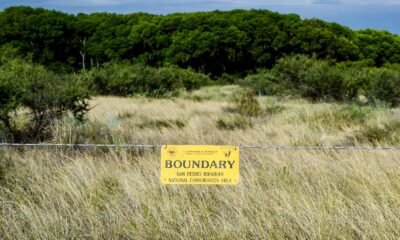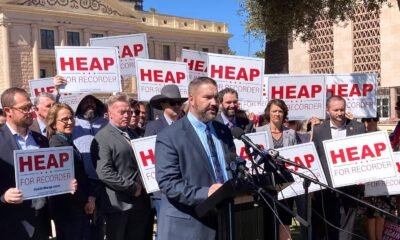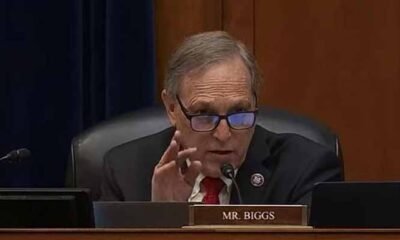2024 election
Arizona Ballot Measure Advocate Defends Abortion as a ‘Normalized Choice’

Three months prior to the U.S. Supreme Court’s landmark decision to eliminate the federal right to an abortion, former Arizona Governor Doug Ducey enacted a law prohibiting abortion after 15 weeks of pregnancy. This move set the stage for a turbulent legal battle regarding abortion rights in the state.
In the wake of the Supreme Court’s ruling in June 2022, which stemmed from the Dobbs v. Jackson Women’s Health Organization case, Arizona’s Republican Attorney General Mark Brnovich sought to revive a dormant abortion ban dating back to the Civil War era. According to reports from Arizona Mirror, despite the initial chaos in the courts, the 15-week ban eventually became law, lacking exceptions for rape, incest, or genetic abnormalities.
This uncertainty surrounding abortion services has left many in Arizona confused, as noted by Chris Love, spokesperson for Arizona for Abortion Access. “The confusion was obviously the point, right?” Love stated, emphasizing the challenges faced by those seeking reproductive health services.
The tightening restrictions sparked a robust response among reproductive rights advocates. A coalition named Arizonans for Reproductive Freedom attempted to launch a ballot initiative in 2022 aimed at enshrining abortion protections into state law. However, the group was unable to collect enough signatures within the limited timeframe imposed by the state.
Following the election of Democratic Gov. Katie Hobbs and Attorney General Kris Mayes, both of whom campaigned on reproductive health care platforms, advocates renewed efforts to place an abortion measure on the 2024 ballot. Their persistence paid off; a proposed constitutional amendment now seeks to restore abortion rights up to fetal viability and maintain access in circumstances where the mental or physical health of the pregnant individual is at stake.
Despite facing opposition, which included a concerted “decline to sign” campaign and a resistance from Republican lawmakers who employed anti-abortion rhetoric, the momentum for the ballot campaign has grown. After the state Supreme Court ruled in favor of an archaic near-total abortion ban, the legislature swiftly repealed it before it could take effect—an action that further energized the advocates, according to Love.
On August 16, during ongoing court disputes over a voters’ pamphlet and efforts by opponents to remove the measure known as Proposition 139 from the ballot, Love shared insights into the current landscape. Her advocacy journey began nearly a decade ago with Planned Parenthood Arizona, reflecting on the repeated challenges faced by abortion-rights supporters. “There’s nothing new under the sun,” she remarked, highlighting the ongoing struggle.
In a recent interview, Love recounted pivotal moments that ignited her passion for reproductive rights. “I had to get married a month early just to access healthcare,” she shared, recalling the personal challenges faced during her pregnancies and miscarriages. The inadequacy of the care she received further motivated her advocacy. “Accessing that care wasn’t as easy as it should have been,” she emphasized.
Arizona’s landscape continues to evolve, particularly in light of recent attacks from Republican leaders aimed at hindering the ballot initiative. The Arizona Supreme Court allowed the phrase “unborn human being” to remain in voter communication, despite advocates’ concerns over its charged connotation. Love critiqued the use of such terminology, calling for the adoption of neutral, scientifically accurate language in public discourse around reproductive health.
The current 15-week abortion ban is not without its flaws,” Love pointed out. It lacks exceptions for victims of rape and incest, and its vague medical exceptions often delay critical care for pregnant individuals. Advocates aspire to revert to pre-Dobbs conditions and counteract the harms inflicted by existing regulations.
Despite significant political challenges, Love remains committed to the initiative focused on abortion rights, while acknowledging the limitations imposed by state law regarding the scope of proposed measures. “We had to create an initiative that would ensure we wouldn’t get kicked off the ballot for trying to do more than the single subject law would allow,” she explained.
As a prominent figure within the campaign and a woman of color, Love conveys the complexity of navigating the political landscape. “When it’s said and done, we might not get the credit for it when we win,” she shared, expressing the disproportionate burden borne by women of color in advocacy roles. The campaign prioritizes inclusion and representation, emphasizing the voices of those most affected by abortion laws.

















